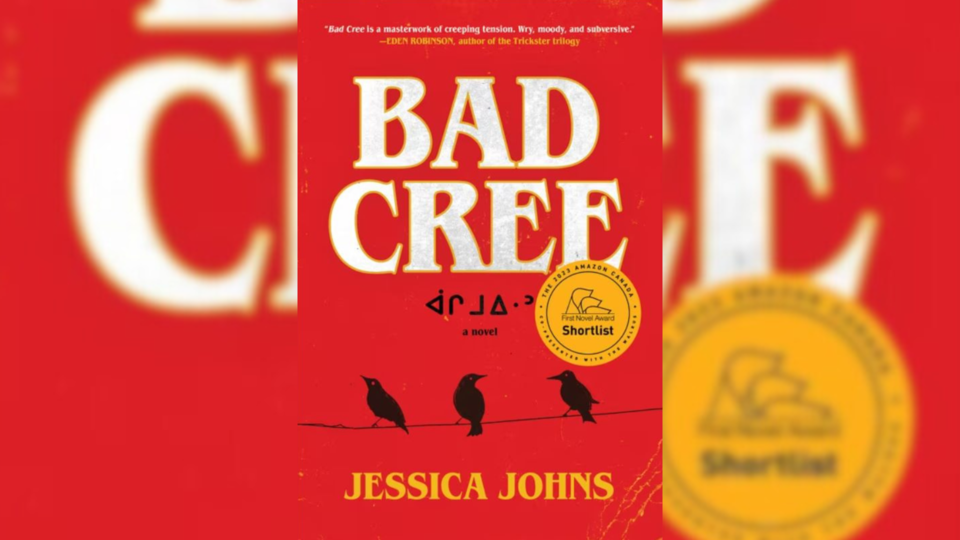I know one of the cardinal rules of book selection is never to judge a book by its cover. You would think that as a librarian, I would be the first to enforce that rule. Sometimes, though, rules are meant to be broken, and sometimes it works out in exactly one’s favour. Such was the case with Jessica Johns’s Bad Cree, with a bright red cover that immediately drew me in. This stunning, though at times chilling, debut, based on Johns’s award-winning short story of the same title, pulls its readers into a haunting story exploring guilt, grief, generational trauma, and above all else, the healing capability of kinship and community.
Cree millennial Mackenzie is, for all intents and purposes, alone. Isolated from her family and grasping to cope with the sudden death of her sister Sabrina, Mackenzie toes the line between “okay enough” and entirely overwhelmed. It’s no surprise to her, then, that the stresses of her life are bleeding into nightmares, but when she wakes up with the beak of a crow digging into her palm – just as it had in her dream – Mackenzie begins to wonder if something deeper is happening. As the line between dream and reality blurs even further, Mackenzie realizes she needs to reconnect with the family – and culture – she left behind in Alberta. When ominous text messages begin pouring in from an unknown number claiming to be – and seeming to be – Sabrina, Mackenzie realizes that there may be more powerful forces at play, and certainly, ones she cannot face alone.
Interviews with Johns, a member of the Sucker Creek First Nation in Alberta, reveal that she drew from her own childhood in creating this story, embedding cultural truth through a novel initially set up as a traditional horror story. The result is a captivating and tender tale of community, of hurt and healing, and truly, is one that cannot possibly be summed up within the limits of this review. To fully understand the scope of this at-once devastating and hopeful book, readers will need to pick it up themselves. And please, trust this reader when she says you really should.
Ginny Dunnill is a librarian at the Brighouse branch of Richmond Public Library. For more great reads, visit www.yourlibrary.ca.



